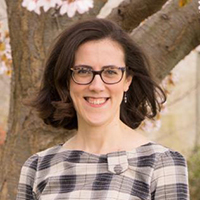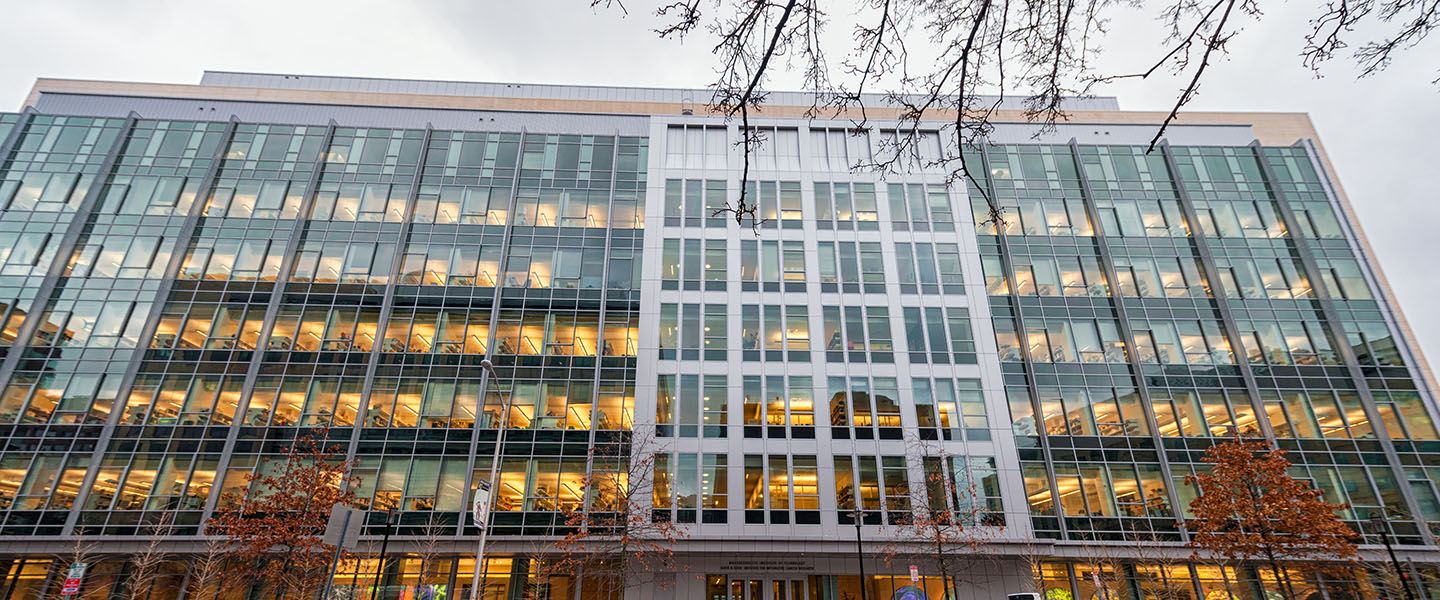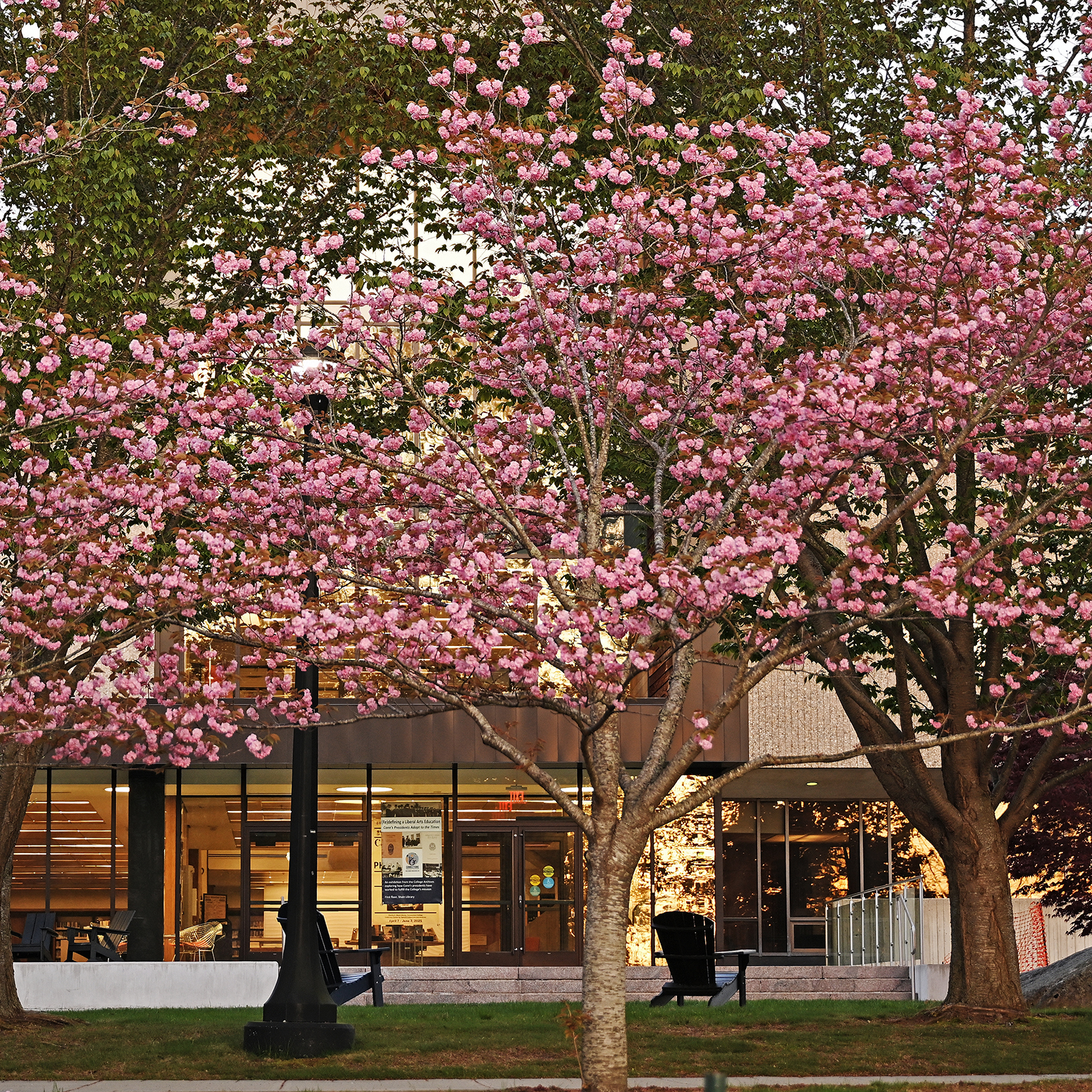
Learning to be scientists
Megan Hrinda ’23 wants to be a scientist. Just six months into her college career, that goal suddenly seemed a lot more achievable, she said.
In late February, Hrinda was one of 23 first-year biology students to tour the Koch Institute for Integrative Cancer Research at MIT in Cambridge, Massachusetts. She watched a robot fill 384-well plates with laser precision, viewed cancer cells under a microscope and peered into a freezer that maintains a temperature of -150 degrees Celsius (-238 degrees Fahrenheit). Prior to the tour, she listened intently as MIT graduate students shared their experiences.
“Meeting the students and hearing their stories, I could really picture myself in their shoes someday,” Hrinda said.
The trip, led by Tempel Professor of Biology Martha Grossel and Assistant Professor of Biology Carla Parker-Athill, is part of the Biology Department’s new curriculum, which is flipping traditional science education on its head.
Instead of starting with content-heavy lecture-based courses, Conn’s first-year biology students take a research-based course “so that they can learn to be scientists,” Grossel said. The course, “Biological Investigations,” emphasizes student-designed laboratory investigations and interactions with scientists.
“Research has shown it is really important for students to have off-campus experiences to see how science works,” Grossel said.
To give her newest students those experiences, Grossel turns to her former students.
Vasilena “Leny” Gocheva ’04 was once an aspiring scientist—much like Hrinda—in Grossel’s molecular biology class. Now, she’s the assistant director for research and internal programs at the Koch Institute.
“Martha really makes you think, not just apply concepts,” Gocheva said of Grossel during the Koch Institute tour. “She runs her lab like they do at big research institutions. Research is work, but you are also having a good time—I remember we made an aquarium out of an old Mac.”
Gocheva said that after conducting research with Grossel, she was hooked. She and a group of other students traveled with Grossel to a cell biology conference, where she connected with a recruiter for internships at the National Institutes of Health. Since Gocheva was an international student, NIH couldn’t pay her, but she was able to accept the internship anyway thanks to the College’s Funded Internship program, and gain valuable experience in an NIH lab. Gocheva said she also had an opportunity to study abroad through the SATA program and complete a senior thesis while at Conn.
“I really got to know my professors, who really care about their students as people,” she said, recalling a time that Grossel helped her arrange a train ticket to Boston to interview for graduate school at MIT. “That individual attention really prepared me for graduate school and for my career.”
Gocheva graduated with a Ph.D. in oncology and cancer biology from Weill Medical College of Cornell University, then accepted a postdoc position with MIT, where she has been ever since.
“Science isn’t a major focus in New York, but in Cambridge, I thought, ‘Here are my people, here are my fellow nerds.’ The joke around here is, ‘Throw a stone, hit a scientist.’”
On the day of Conn’s visit, Gocheva introduced the 23 first-year students to five of the Koch Institute’s graduate student researchers. They spoke about how they became interested in science, how they approached their undergraduate education and what daily life is like for a researcher. They also shared advice, including “make sure to hang out with some people who don’t speak science all the time,” and “try not to base your emotional happiness on your experiments.”
Gocheva said understanding that the vast majority of experiments fail is an important part of becoming a successful scientist. That’s counterintuitive to how most of us are introduced to science, which typically goes something like this: Someone had a hypothesis, then they designed an experiment and proved the hypothesis was correct.
“Graduate programs want to make sure you are realistic. They want to know, ‘How do you deal with failure?’ Each failure is a learning experience, and having that experience is very valuable,” she said.
Following the tour, students met another of Grossel’s students—one of her very first at Conn— Kristen Park Hopson ’01. Recently named one of Business Insider’s “30 leaders under 40 who are transforming healthcare,” Hopson previously directed key cancer research, including the development of personalized cancer vaccines, at the fast-growing biotech company Moderna. Now, she’s head of immunology and oncology at Generate Biomedicines, Inc., where she is working to use machine learning to create new proteins.
“There’s something really special about doing research with the goal of making new medicine,” Hopson told the students.
A double major in zoology and biochemistry, cellular and molecular biology at Conn, Hopson earned a Ph.D. in molecular medicine from Boston University and completed postdoctoral fellowships at Harvard Medical School and at Pfizer, one of the world’s largest pharmaceutical companies.
Hopson told the students that their communication skills will be a differentiator, and advised them to keep their science and other academic pursuits diverse and well-rounded.
“You don’t have to have a preordained idea about what will happen in your career,” she said. “Ninety percent of it is figuring out what you don’t want to do.”

